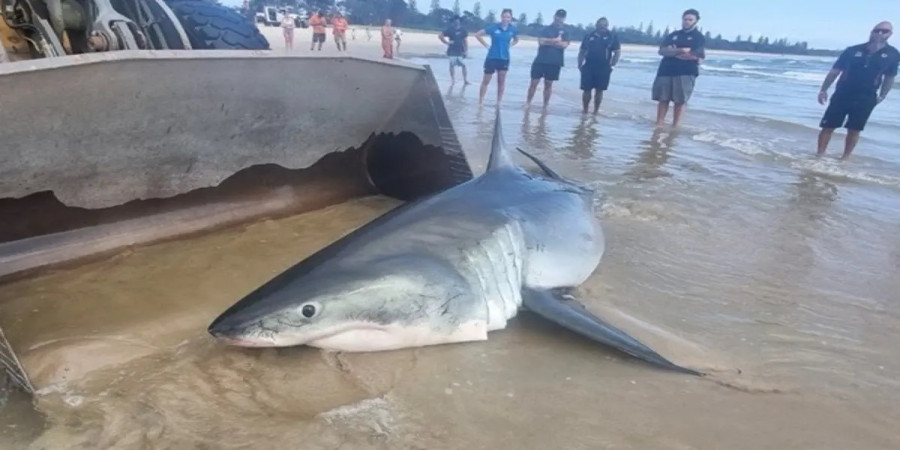

Great White Shark Washed Ashore: Understanding Beachings and Staying Safe
The sight of a great white shark, a powerful apex predator, washed ashore can be both fascinating and unsettling. While uncommon, these beachings raise questions about the shark's health, the cause of stranding, and potential safety concerns for beachgoers.
Why Do Great White Sharks Strand Themselves?
Great white sharks are active, pelagic fish, meaning they spend most of their lives in the open ocean. Beachings are relatively rare events, and the exact cause can be difficult to determine. Here are some potential explanations:
- Disease or Injury: A sick or injured shark may become disoriented and unable to maintain its position in the water, leading it to drift ashore.
- Navigation Errors: Sharks rely on electromagnetic fields for navigation. Disruptions in these fields, caused by man-made structures or natural phenomena, could lead a shark astray.
- Following Prey: Great white sharks are known to follow prey close to shore. In rare instances, they might become stranded while pursuing food.
What Happens After a Beaching?
The outcome for a beached great white shark depends on several factors, including the severity of its condition and the time it spends out of water. Sadly, many stranded sharks don't survive due to dehydration, overheating, or injuries sustained during the stranding event.
When a beaching occurs, trained professionals typically assess the situation. Depending on the health of the shark, they may attempt to refloat it or euthanize it humanely. Additionally, scientists may perform a necropsy (animal autopsy) to determine the cause of death and learn more about the shark's health.
Should Beachgoers Be Worried?
The chances of encountering a shark while swimming are extremely low, and even fewer involve beachings. However, it's always wise to be aware of your surroundings in the ocean. Here are some safety tips:
- Swim in Clear Waters: Sharks may struggle to distinguish between prey and humans in murky water. Opt for clear waters with good visibility.
- Avoid Areas with Known Seal Activity: Seals are a common food source for great white sharks. Areas with frequent seal sightings might pose a slightly higher risk.
- Stay Informed: If you're visiting a coastal area, inquire about local wildlife and any recent shark activity.
Respectful Coexistence
Great white sharks are a vital part of healthy marine ecosystems. Understanding beachings and practicing safe swimming habits can help ensure the safety of both humans and these magnificent creatures.
References:
- 15-foot great white shark washes up on Florida beach (https://twitter.com/FOX13News/status/1762523087466070151)
- Great White Shark Washes Up on Beach, Shocking Crowd (https://www.newsweek.com/topic/great-white-shark)
By following these tips and staying informed, you can minimize any potential risks and enjoy the beauty of the ocean while respecting the incredible wildlife that calls it home.
Popular articles

Apr 11, 2024 07:40 PM

May 25, 2024 08:09 PM

Apr 11, 2024 07:22 PM

Apr 10, 2024 07:59 PM

Mar 14, 2024 07:53 PM
Comments (0)